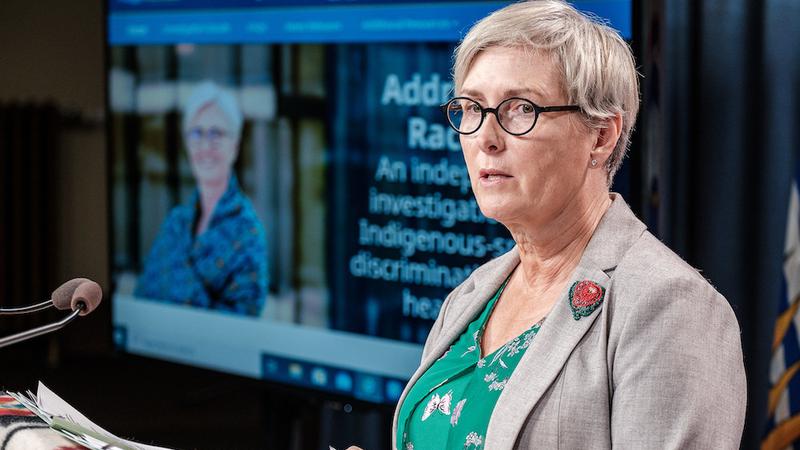
Investigator finds racism against Indigenous people in B.C. hospitals but no “Price is Right” game
NANAIMO — “Clear evidence” of widespread racism within B.C.’s health care system was recorded by an investigator, but not the specific incident she was tasked with uncovering.
Independent investigator Mary Ellen Turpel-Lafond announced her findings on Monday, Nov. 30. She’d been tasked with reviewing systemic racism against Indigenous people after allegations arose of a “Price is Right” game involving nurses guessing the blood alcohol content of Indigenous patients.
“The Review found no evidence to substantiate that the ‘Price is Right’ game was being played in B.C. hospital emergency departments,” the report said. “If such games did occur in the past, they are not occurring today.”
Turpel-Lafond said there are “episodic, anecdotal reports” resembling the allegations but none which could be described as “prevalent, widespread or targeting only Indigenous patients.”


